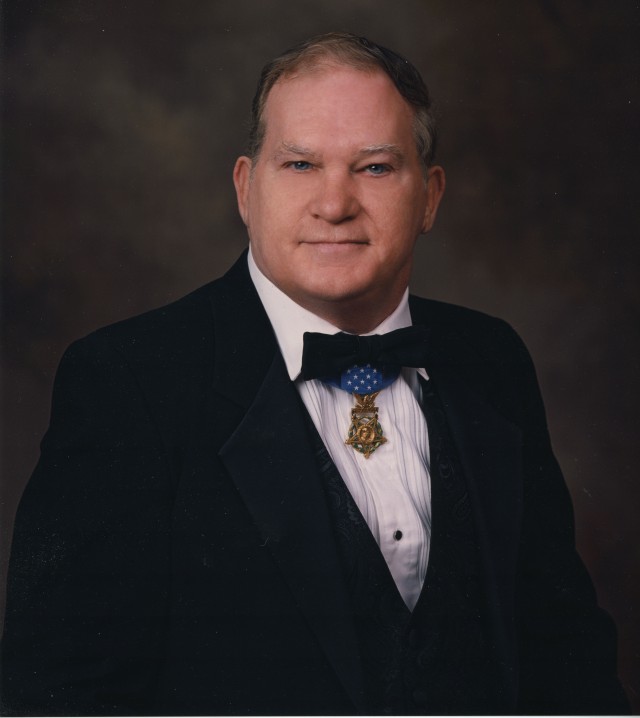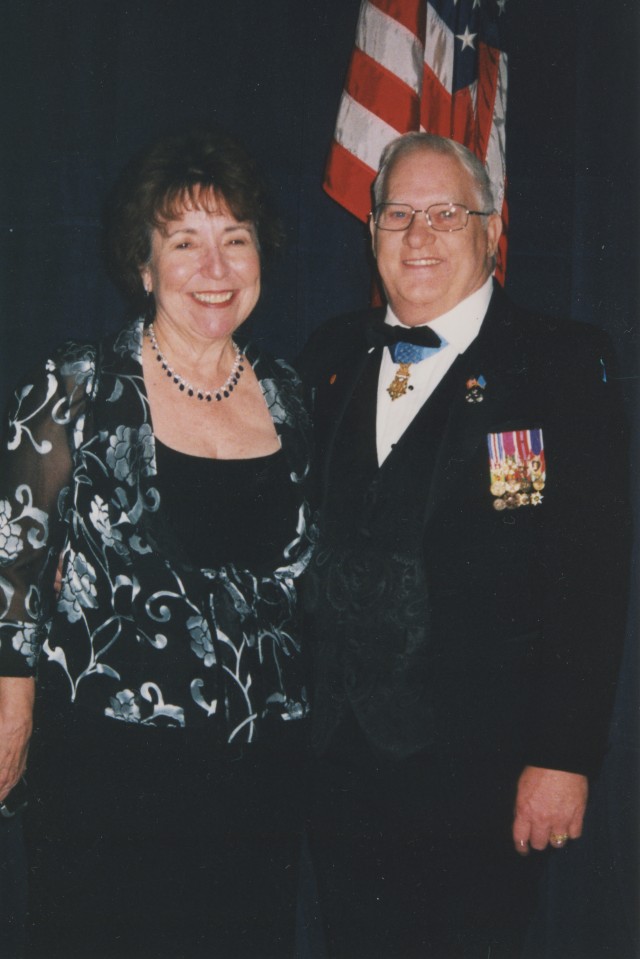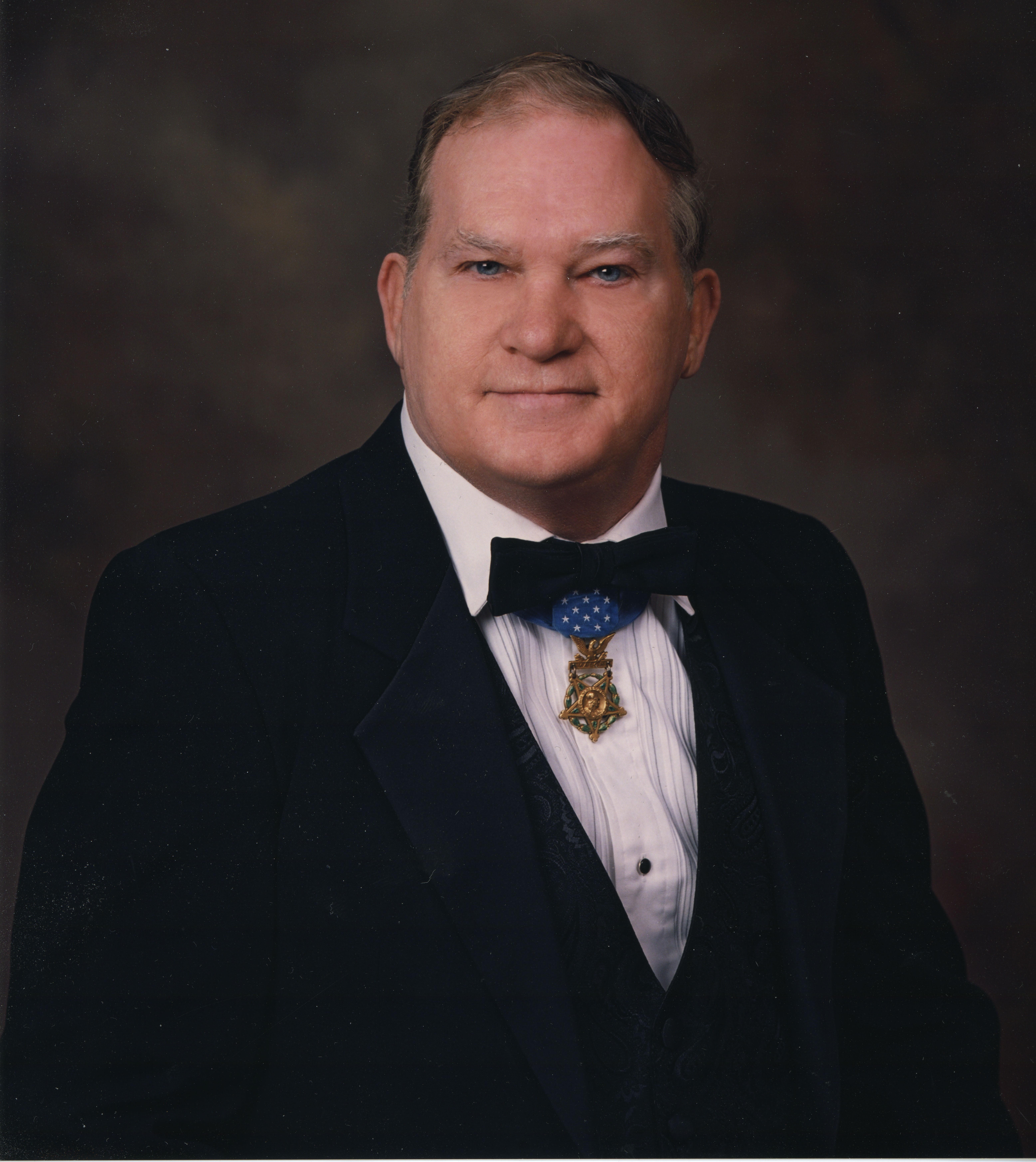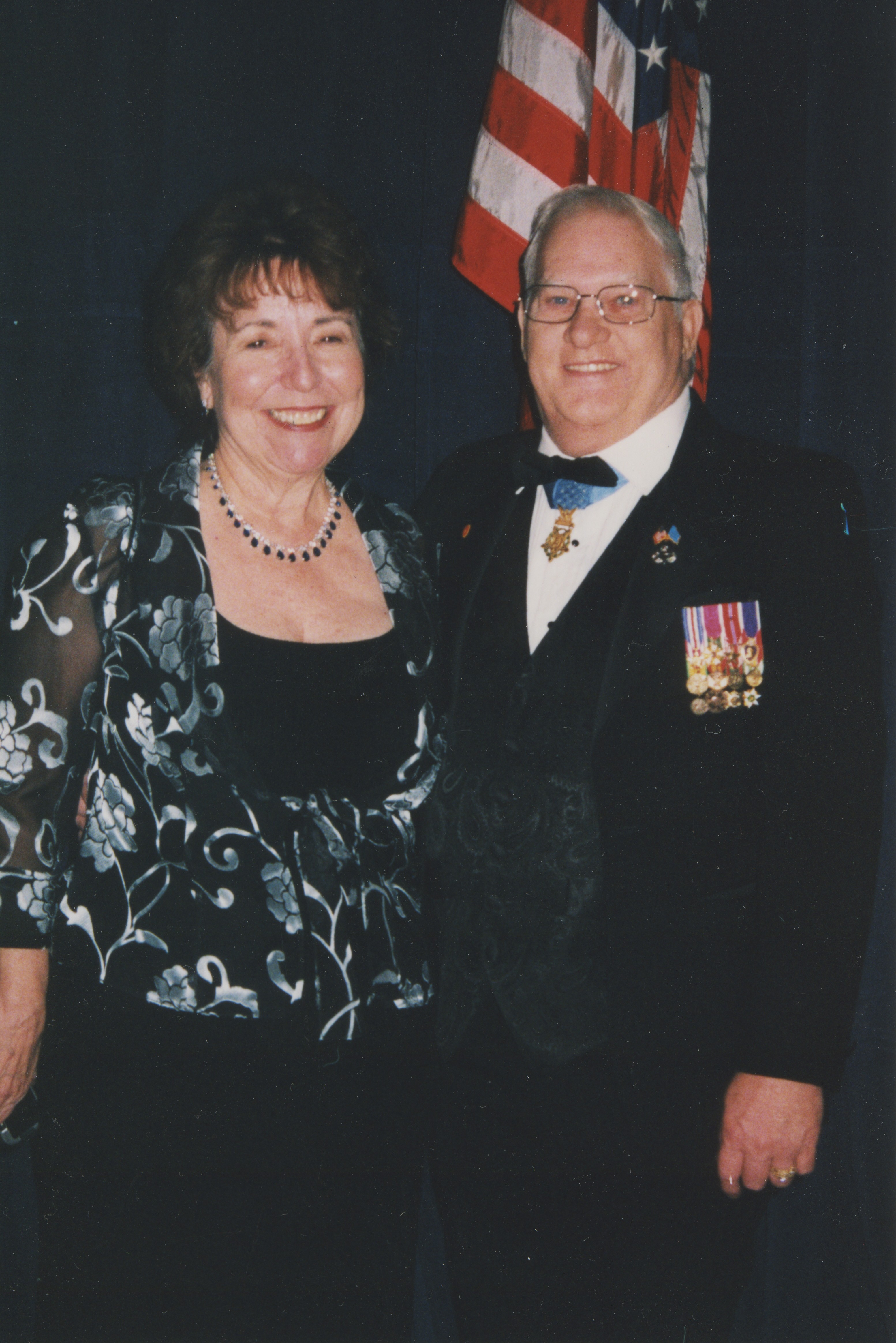FORT JACKSON, S.C. -- Retired Master Sgt. John Baker Jr., Medal of Honor recipient, embodies the Soldiers Creed: Never accept defeat, never quit, never leave a fallen comrade.
Nov. 5, 1966, near Tay Ninh Province in South Vietnam, as a member of Company A, 2nd Battalion, 27th Infantry Regiment, 25th Infantry Division, Baker, then a private first class, distinguished himself with gallantry and intrepidity.
On an early morning mission, his unit entered the dense jungle to assist a company heavily engaged with the enemy. More than 3,000 Viet Cong soldiers were hidden in the dense overgrowth, tied to tree limbs or hiding in concrete bunkers.
The company immediately faced heavy machine-gun and mortar fire and the lead man was killed. Baker and a fellow Soldier moved to the front and charged two enemy bunkers, discharging the heaviest fire.
Baker's comrade was hit, and his arm was nearly torn off. To protect him, Baker killed four Viet Cong snipers, evacuated the fallen Soldier, returned to the front and killed several more Viet Cong.
As Baker and another Soldier attacked two more bunkers, he was blown from his feet by a grenade. Baker recovered quickly, and with a fellow comrade, destroyed another bunker before the other man was wounded. Grabbing his fallen comrade's machine-gun, Baker charged through heavy enemy fire to destroy a fourth bunker, killing several more Viet Cong.
He evacuated his fallen comrade to the rear, replenished his ammunition, and returned to the fire fight. As orders came to withdraw, Baker carried another fallen Soldier to the rear.
As Baker was returning to evacuate another fallen comrade, snipers fired on him. He raced beyond his fellow Soldiers, attacked and killed the four snipers. Out of ammunition and exhausted, he dragged two more fallen comrades to the rear.
As they withdrew, elements of the 101st Airborne, 82nd Airborne and 25th Infantry divisions arrived to provide much needed support.
After it was over, Baker realized his uniform was soaked with the blood of his fellow comrades. Thinking about the men, he realized he had overcome fear to do what needed to be done for the men in his unit.
Standing 5 feet 2 inches, and weighing 105 pounds, the daunting task he completed seems even more remarkable. His wife, Donnell, believes that his gymnastics training prior to joining the Army gave him the strength and stamina to survive.
In Vietnam, Baker also served as a "tunnel rat." The Viet Cong built miles of tunnels underground during the French War and used them for training, attending to the wounded and burying the dead.
Baker's job involved scouting the tunnels filled with pits full of snakes, spiders, scorpions and sharp bamboo. Tunnel rats like Baker would often make contact with the enemy.
Baker was awarded a Purple Heart for wounds he received while engaging the enemy in the tunnels. The day Baker left Vietnam he heard he was to receive the Medal of Honor, but he could hardly believe it.
After a short trip home, he was assigned to Fort Jackson as a drill sergeant. On the last day of his two-year assignment, a call came for him from the White House. President
Lyndon Johnson called to talk to Baker and told him he was invited to the White House to receive the Medal of Honor.
On May 1, 1968, Johnson awarded Baker and his company commander, Capt. Robert Foley, the Medal of Honor.
Baker was born in Davenport, Iowa, on Oct. 30, 1945. When he was 8, his family moved to Illinois after Baker's father, a trapeze artist with the Warner Brothers Circus, died.
Baker attended Moline High School, where he participated in gymnastics and football. After leaving high school, Baker wanted to join the Marines, but was an inch too short. He joined the Army and did basic training at Fort Polk, La., artillery training at Fort Sill, Okla. and infantry and airborne training at Fort Benning, Ga.
He also had assignments in Hawaii, the Pentagon, the now-defunct Fort Benjamin Harrison, Ind., and Fort Sam Houston, Texas.
Baker met his wife in Honolulu when they were both working for the Hawaiian singer Don Ho. She was taking reservations and Baker was working as Ho's bodyguard.
For 25 years, they have traveled the United States and Europe making sure young people know how important it is to honor today's Soldiers. They also travel to hospitals visiting wounded Soldiers, as well as the Fisher House to encourage young wives and families.
Baker has met presidents, celebrities, has a bridge named in his honor, and there is a monument in the works, but his proudest moment is still the moment he received the Medal of Honor.






Social Sharing